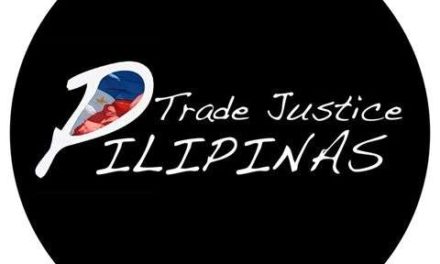Brussels, 4 April 2007
The EU has today proposed to remove all remaining quota and tariff limitations on access to the EU market for all African, Caribbean and Pacific regions as part of the Economic Partnership Agreement negotiations. The offer covers all products, including agricultural goods like beef, dairy, cereals and all fruit and vegetables. It will apply immediately following the signing of an agreement – with a phase – in period for rice and sugar. The only exception will be South Africa where a number of globally competitive products will continue to pay import duties
This offer will:
Eliminate all tariffs and import quotas for all ACP countries.
Give all African Caribbean and Pacific countries the same full access to EU markets that all Least Developed Countries have under the EU’s “Everything But Arms” Duty and Quota Free market access system. This means all ACP countries would have the same market access conditions, encouraging ACP neighbours to collaborate and helping build regional markets and supply chains – responding to the concerns of agricultural exporters in countries like Kenya or Ghana.
Not be tied to the requirement of equivalent openness from the ACP countries. The EPAs are not free trade agreements in the classic sense. Flexibility under WTO rules means that ACP counties will have to offer market access, but this will phase in over many years. The ACP will also retain the right to protect sensitive products where the removal of import duties could threaten local producers.
Apply in full from day one – planned to be 1 January 2008 – with the exception of a transition period for rice and sugar. The transition periods for rice and sugar will ensure compatibility with EU market reforms and ensure stability to protect the interests of both the EU and ACP producers who supply those markets.
What are EPAs?
Economic Partnership Agreements are the trade and development agreements that the European Union is currently negotiating in parallel with 6 African, Caribbean and Pacific (ACP) regions (The Caribbean; West Africa; East and Southern Africa, Central Africa, Southern Africa and the Pacific). They will replace the trade chapters of the 2000 Cotonou Agreement between the EU and the ACP countries. The waiver exempting these chapters from WTO law will expire at the end of 2007, requiring both parties to have put in place a WTO-compatible alternative. The European Union has committed to ensuring that the EPAs will guarantee both the development focus and improve on the preferential trading terms currently enjoyed by ACP countries, while complying with WTO obligations.
Improving the system
The Economic Partnership Agreements aim at integrating the ACP into the world trading economy and increasing the quantity and diversity of their trade. After more than thirty years of preferential access to Europe’s markets, the ACP still exports just a few basic commodities, many of whose prices are in long term decline. The EU’s Economic Partnership Agreements are the agreements that the EU is negotiating with the six African Caribbean and Pacific regions with new agreements that are WTO compatible, preserve existing benefits and encourage economic diversification and development. They will change our relationship, from one that offers tariff preferences to one that builds lasting regional and international markets for the ACP. Under current arrangements, the 40 ACP Least Developed Countries (LDCs) already have duty and quota free access to the EU while the 37 non-LDCs have special tariff preferences under the Cotonou Agreement and one country, South Africa, has a bilateral Free Trade Agreement (the Trade and Development Co-operation Agreement). A core objective of the EPAs is to bring each EPA region under a single trade regime to encourage regional integration, the growth of regional markets and creation of regional supply chains.
Sugar
The need for a transition period to phase in duty and quota free access for ACP sugar exports is to protect the balance in the EU market while internal reforms are underway, which is in the interests of both EU producers and ACP exporters. From 2015, ACP sugar would be duty and quota free and there will be an adjustment to the standard EPA safeguard to take account of the sensitivity of sugar.
Rules of Origin
Rules of Origin are used to ensure that it is ACP producers who benefit from access to EU markets and ACP countries do not simply become a transit channel for exports from third countries with no benefit to local industry. To ensure EPAs deliver the maximum benefit to the ACP, the European Commission, in parallel to its market access offer, has also begun discussions with the 6 ACP regions on developing simpler and more development friendly Rules of Origin.
Read the Memo
(links to standard Q&A on: http://ec.europa.eu/trade/issues/bilateral/regions/acp/memo010307_en.htm
More details of the Market Access offer
(links to page below: http://ec.europa.eu/trade/issues/bilateral/regions/acp/mao040407_en.htm )







